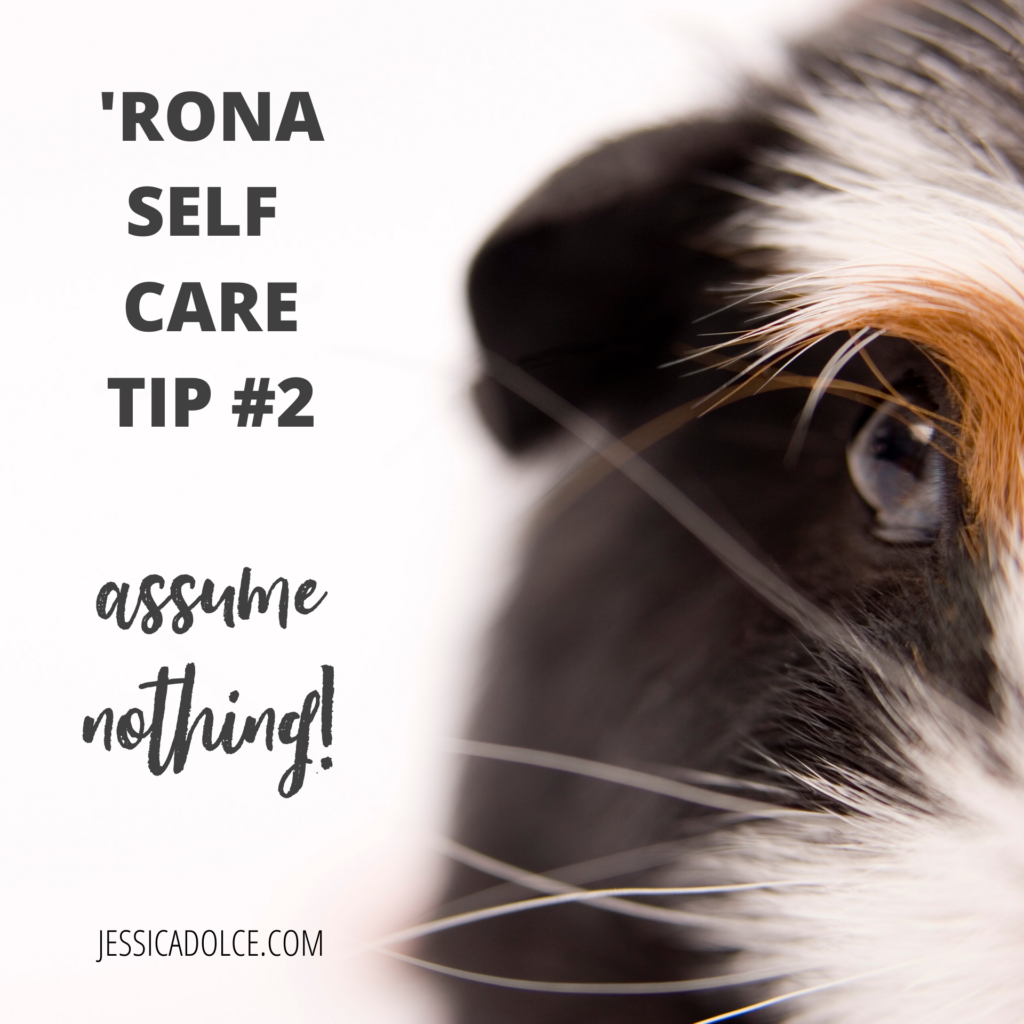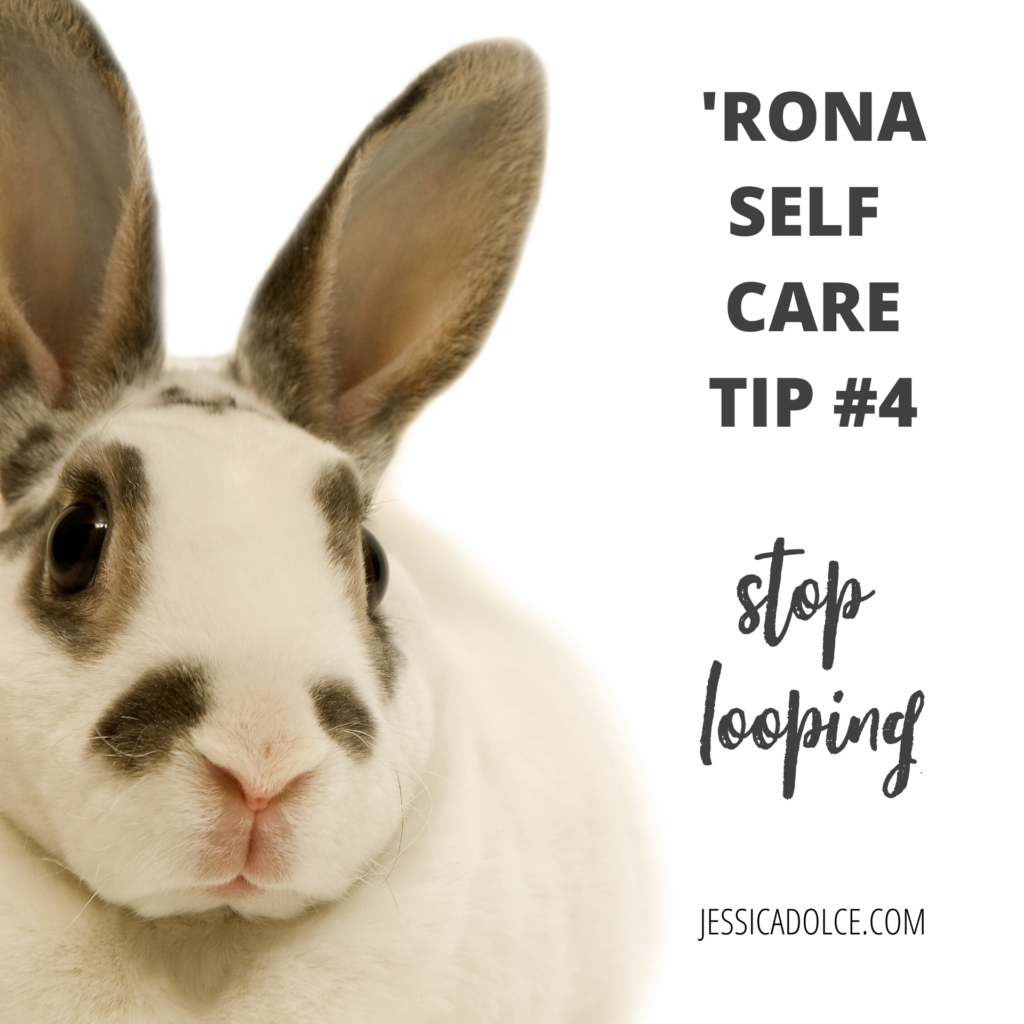5 Practical Self-Care Tips For Coping with COVID-19

If you’re a helping professional, the following tips would apply on any typical day of high-stress, emotional work. But now, whether you’re working overtime or sidelined at home, it’s more important than ever to weave these simple practices into your day, so that you can be well during the COVID-19 crisis.
Tip #1 Get Grounded
You can listen to Jessica read tip # 1 here.
COVID-19 has brought a massive amount of change and uncertainty into our lives. Lack of control and uncertainty can trigger fear, which activates our stress response (fight/flight/freeze). This impacts our wellbeing and our ability to do our work effectively.
Feeling stressed right now is normal! But being stuck in stress does take a toll on our immune system, emotions, and relationships.

Simple self-regulation practices are one way we can reduce stress. Self-regulation activates our parasympathetic nervous system, which triggers the rest and restore response, helping us to feel safer, less reactive, and more in control.
Here are a few ways to practice self-regulation:
- Focused breathing, such as box or square breathing
- Grounding in the present moment through your senses (orient yourself to the environment: what can you see, hear, smell, feel, and taste right now?)
- Shake the stress out of your body (just like a dog!)
- Go for a brisk walk or dance
- Watch a funny video and laugh out loud
- Sing or hum (activating your vagus nerve)
- Cuddle your pets or hug a loved one (for at least 20 seconds)
- Place your hands on your chest, over your heart, and say “I am safe”
Another option is to do something small that’s within your control. Clean a junk drawer, weed your garden, or brush your dog. Give yourself a quick win with a tangible outcome.
These practices may seem too simple to make an impact, but the research is clear – our nervous system plays a critical role in our resilience. Through simple self-regulation practices we can tend to our nervous system and reduce our stress.
Try these short exercises multiple times throughout the day and they’ll add up, helping you to feel calmer, think more clearly, and communicate effectively during this challenging time.
Tip #2 Assume Nothing
When your stress response is triggered you may notice a change in your ability to communicate.
That’s because your “downstairs” brain (the emotional and primitive parts of your brain, such as your amygdala) are in charge of responding to (real or perceived) threats to your safety.
Your “upstairs” brain (the rational and logical part of your brain) goes “offline” during this time.
Your upstairs brain is what you need to problem solve, communicate, control your emotions, and access empathy. If you’ve ever done something you immediately regret, your downstairs brain was in charge.
That’s why communicating while stressed = increased misunderstandings, hurt feelings, and lots of problems to fix later on.

Here’s what you can do to improve communication and make life a little easier for yourself and others during this time:
1. Soothe your nervous system to help your “upstairs brain” come back online. Self-regulation always helps.
2. Do not take anything personally. Everyone is stressed and afraid right now. Whatever people say and do is a reflection of how they’re feeling. Never assume it’s about you, because it’s not.
3. Always check for understanding. When you speak, ask that the person listening repeat back to you what they heard, so you can check that they understood. When you’re listening, repeat back what you think you heard and ask what you got wrong.
Try not to assume anything is personal, that you’ve been understood, or that you understand someone else during this stressful time.
By calming your nervous system and checking for understanding you’ll reduce hurt feelings and increase everyone’s chances of getting critical tasks done correctly.
Tip #3: Prep For Sleep
Feeling tired, but too wired to sleep? Many helping professionals experience this on an average work day. Now lots of us are struggling with falling and staying asleep at night.
The irony is that sleep is an important part of keeping our immune system healthy. And we need that now more than ever.
So what can we do if we’re too stressed to sleep? It probably won’t help just go to bed early. Most of us will need to actively prepare our bodies to rest.

Here’s how:
1. Get grounded and self-regulate all day with the practices listed above. Self-regulation is no joke! Pump the breaks on your stress response ALL DAY.
2. Create a 5-20 minute pre-bedtime routine to help shift your body into a more parasympathetic (rest and restore) state:
- Do “legs up the wall” pose for 5-10 minutes
- Use a weighted blanket or an 8 pound bag of rice on your belly
- Take a lukewarm shower 60-90 minutes before bed
- Stretch tight muscles with a foam roller
- Listen to guided meditations, yoga nidra, or an audiobook
- Soak your feet in Epsom salt with lavender oil
- Write in a journal – release worries or notice the good
By taking some time to release tight muscles, lower your blood pressure and heart rate, and sooth your frazzled nervous system, you’ll be more likely to fall and stay asleep.
If you do find yourself waking up at 3am, don’t stress about it. If you can’t fall back to sleep, get up and try one of the options above.
Tip #4: Stop Looping
Rumination or overthinking can feel like a productive thing to do when you’re nervous or upset, as we all are right now. But numerous studies have shown that overthinking leads to a variety of negative consequences.
It sustains or worsens our sadness, fosters negatively biased thinking, and impairs our ability to actually solve problems. We need to get out of the loop.

If you notice you’re going round and round in your head try to:
- Engage in a distracting activity. It needs to be engrossing enough that you won’t lapse back into thinking and ideally something that generates a positive emotion. But it doesn’t matter what it is, as long as it absorbs you and doesn’t harm you.
- Read or watch something suspenseful or funny
- Meet a friend for a virtual coffee date
- Go for a run or do yoga
- Pray or meditate
- Run lists or count objects. If you’re feeling overwhelmed, try naming all 50 states, the cast of GOT, count the books in your office, or name 50 objects you can see right now. This helps bring your upstairs brain back online and then you can more easily shift to another activity.
- Talk back to yourself. If you notice you’re saying the same negative things to yourself on repeat, choose a new comeback or mantra to repeat instead:
- “I can handle this.”
- “I will deal with what happens when it happens.”
- “I’m doing the best I can with the limited resources available.”
- “I’m a compassionate badass who tackles challenges for a living.”
- “This is temporary.”
When we’re stressed our mind, just like our body, can go into overdrive. But we can use positive distractions and compassionate self-talk to help us break out of the worry cycle, so we can feel more calm and capable.
Tip #5: Sanitize with Compassion
Metta meditation, otherwise known as Loving Kindness Meditation (LKM), is a powerful practice (backed up by science) that generates positive emotions, a sense of goodwill, compassion for yourself and others, and fosters connection.
Right now, we could use ALL of the above! This is a simple practice you can do anywhere. Right now, it’s a great way to feel connected every time you wash your hands.

If you want to give it a try, say the following phrases to yourself:
May all beings be safe.
May all beings be happy.
May all beings be healthy.
May all beings live with ease.
Repeat this set of phrases three times. That’s enough time to generate warmth in your heart AND bust the germs on your hands.
Remember: Stress is cumulative, but so is self-care. If you take a few minutes here and there throughout the day to self-regulate, check for understanding, prep for sleep, distract your worried mind, and feel connected to the world while you scrub, it will all add up, helping you to feel more calm and resilient during this difficult time.
For more on each of these ideas, please see my free Coping with COVID-19 webinar here.
Looking for more support? Schedule a free call with me, so we can get to know each other and find out if 1-on-1 coaching or my Compassion in Balance Program is the right fit for you or your team!
Let's Stay Connected.
Sign up for ideas, updates, and your free copy of The ABCs of Self Care Workbook!
I heart boundaries and will never sell your email address. Unsubscribe at any time.

